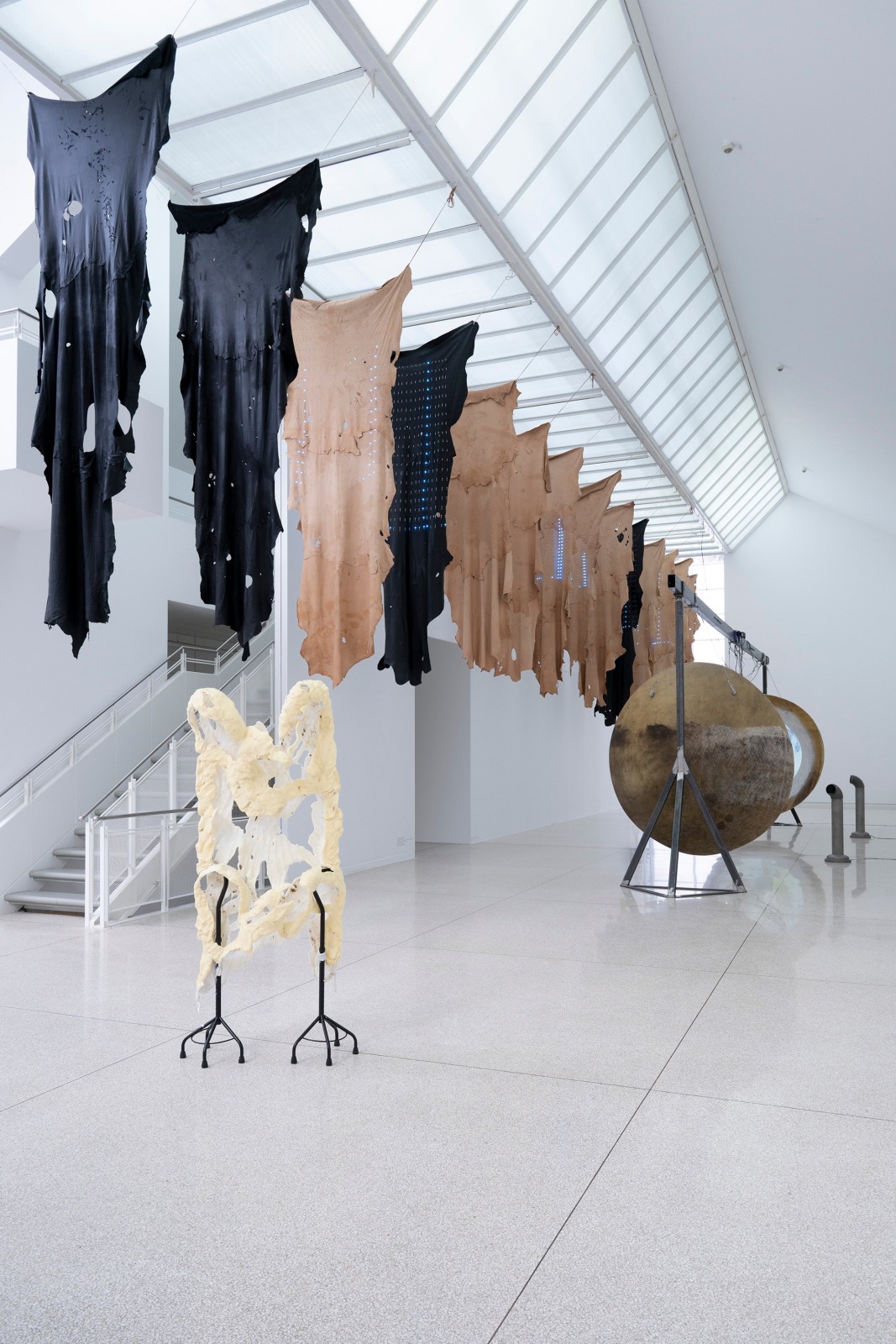
Found Subject
The “found subject” that is mentioned in the title of the exhibition is the German-Jewish author, translator and playwright Erich Hopp, who spent most of his life in Berlin between 1888 and 1949. A real historical figure, but virtually unknown today. Raphaela Vogel ‘found’ Hopp by chance when she moved into a house in Eichwalde, south-east of Berlin, a few years ago.
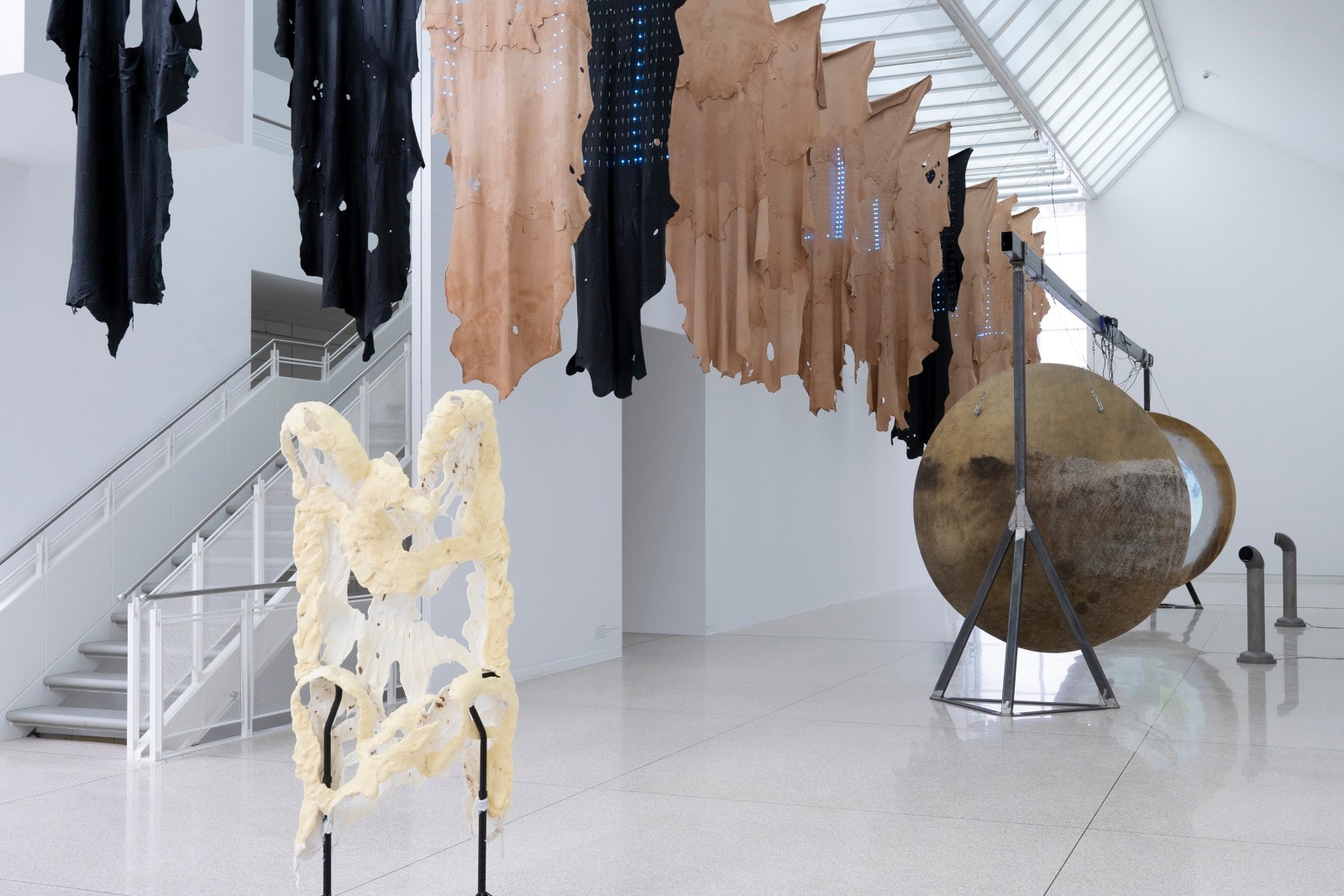
A plaque there commemorates the fact that Hopp, along with his wife and son, were hidden there between 1943 and 1945 and protected from imminent deportation to a concentration camp. This was thanks to Karl Marguerre, the owner of the house at the time (it was his nephew by the way who lent his name to the Marguerre Hall in the Heidelberg Theatre).
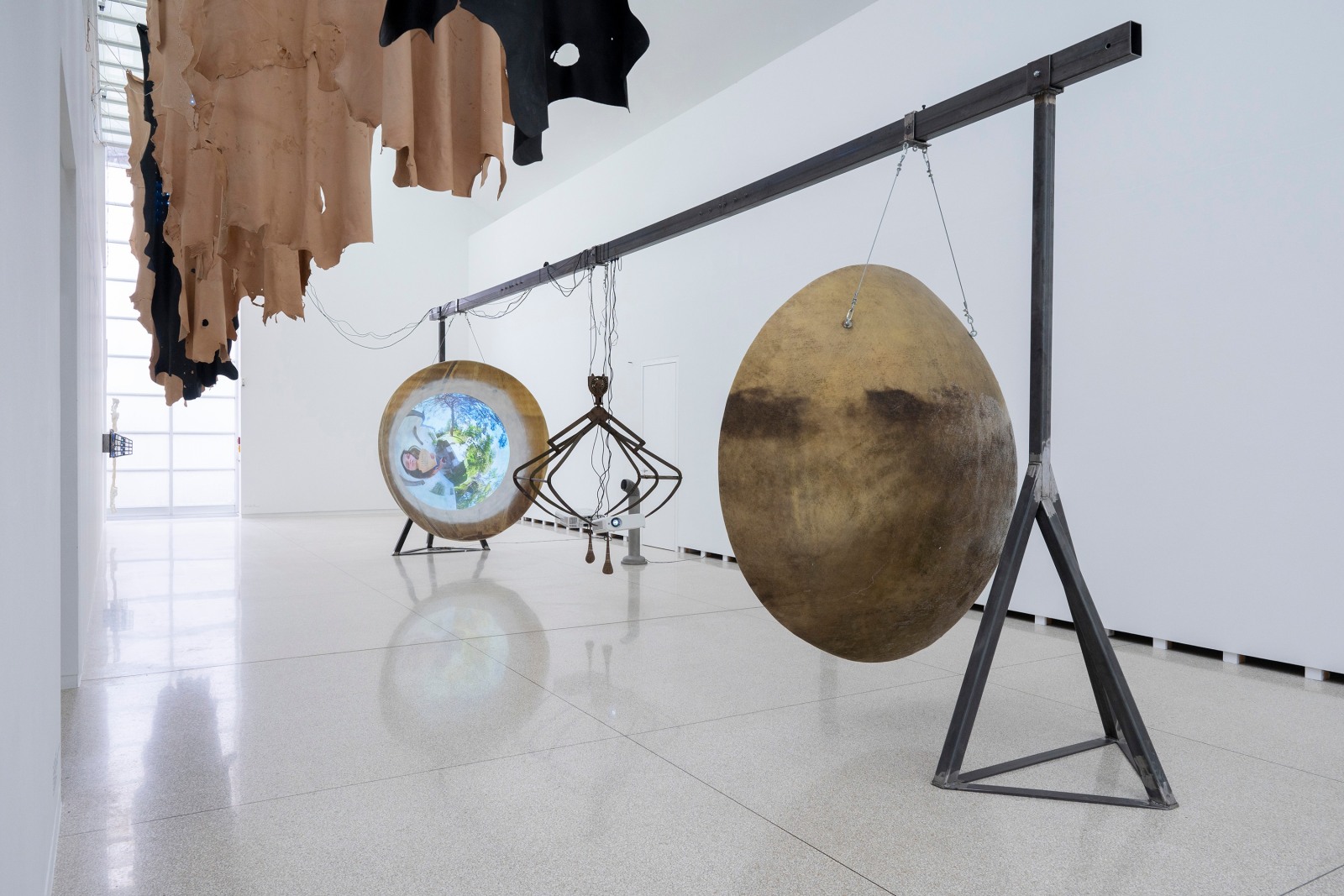
Vogel’s research has brought further details about Hopp to light: he seems to have devoted himself to working in the theatre in the 1920s. In a Lithuanian second-hand bookshop, Vogel also found an original score of the song “Miss Germany Tango”, the lyrics of which were written by Hopp in 1930. The music was composed by Miss Germany Carla Boehl herself, who had moved up from second place at the time.
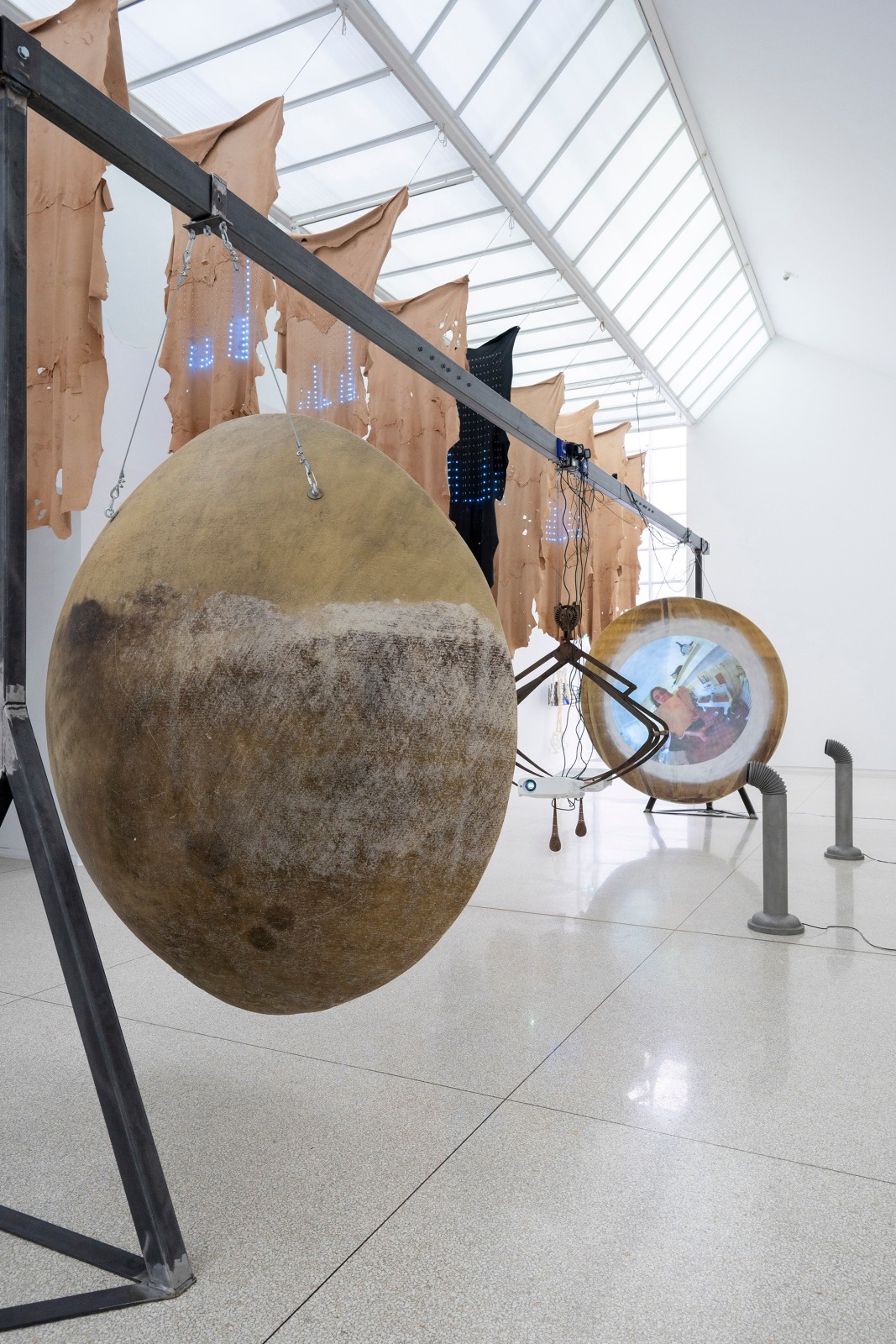
Vogel performed the song for her pavilion-like installation “Elephant’s Memory” in Berlin’s Scheunenviertel, where it was played several times a day over loudspeakers. A pogrom against the Jewish population had taken place in this district in 1923, a hundred years before Vogel’s temporary memorial. Hopp also hid here for a long time. In constant fear of being discovered by a misanthropic environment, he wrote his major work,
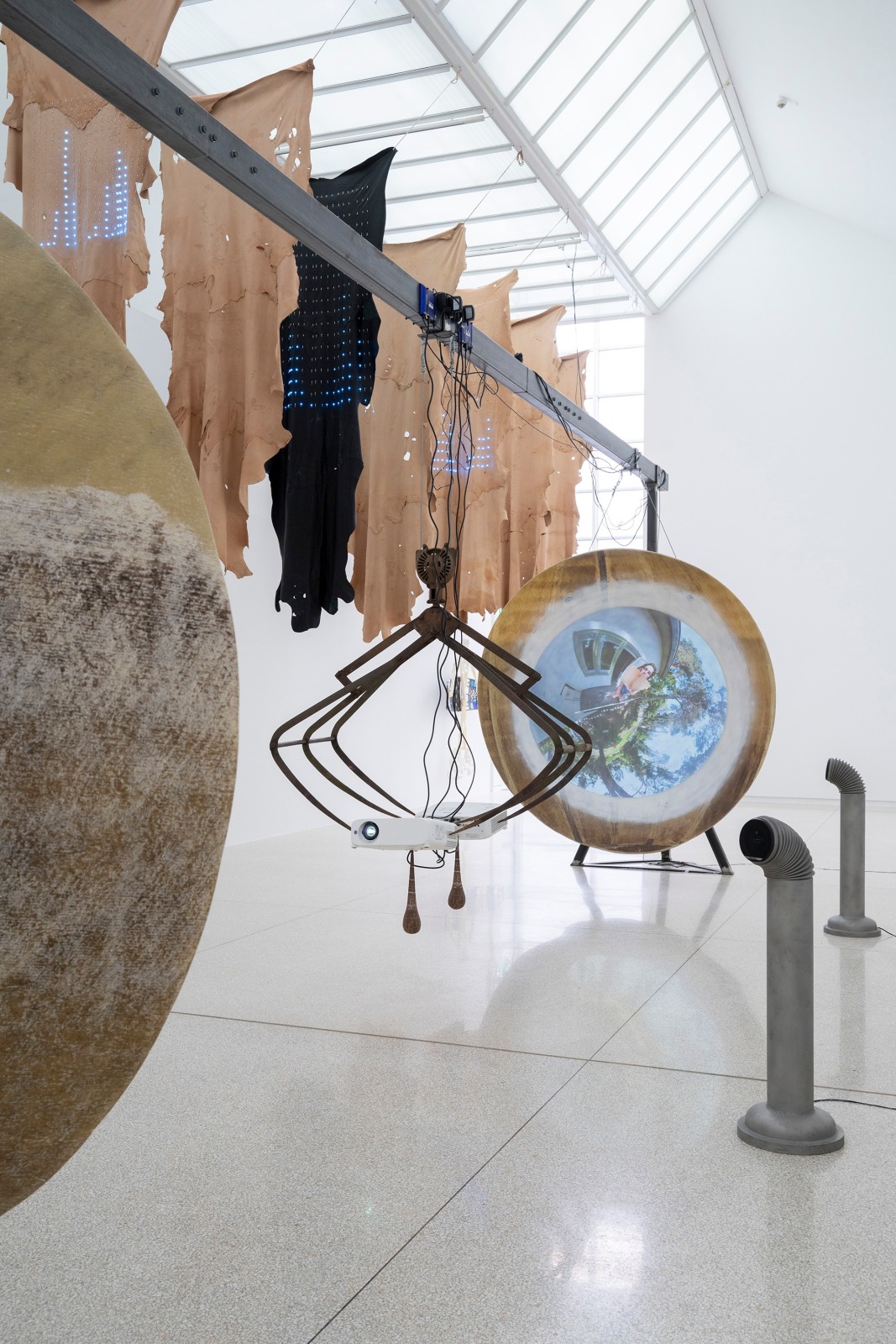
“O Mensch verzage nicht” (“O Man, Do Not Despair”), 24 psalms, published by Pontes in 1947, two years before Hopp’s death in a camp for displaced persons. In ‘Found Subject’, Vogel takes up the approach of ‘Elephant’s Memory’ and sets one of the psalms to music. The unpretentious but haunting melody becomes the soundtrack of a two-channel music video in which Vogel moves through the rooms of her house – also Hopp’s last hiding place – simultaneously filming from different perspectives.
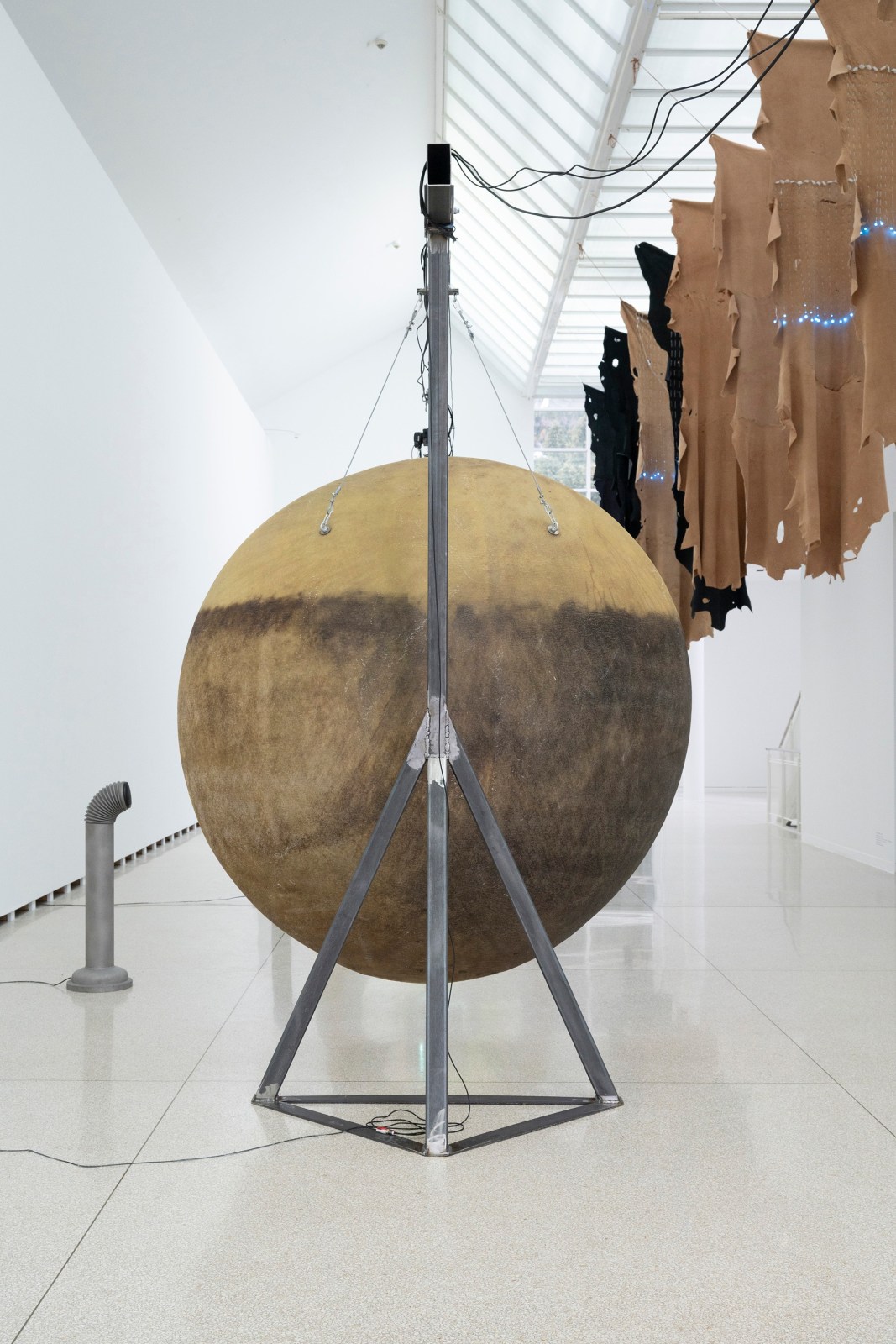
The house, which served as a hiding place, contains an architectural vision. It was designed by Richard Iwan and completed in 1931. Iwan, who is little known today, was influenced by the spirit of the Bauhaus and sought new possibilities for modular systems. The idea was to make it possible to combine houses from different prefabricated cubes according to requirements. Vogel uses a fish-eye effect for her shot of the house, which bends all the lines outside the centre of the image, creating a panoramic view.
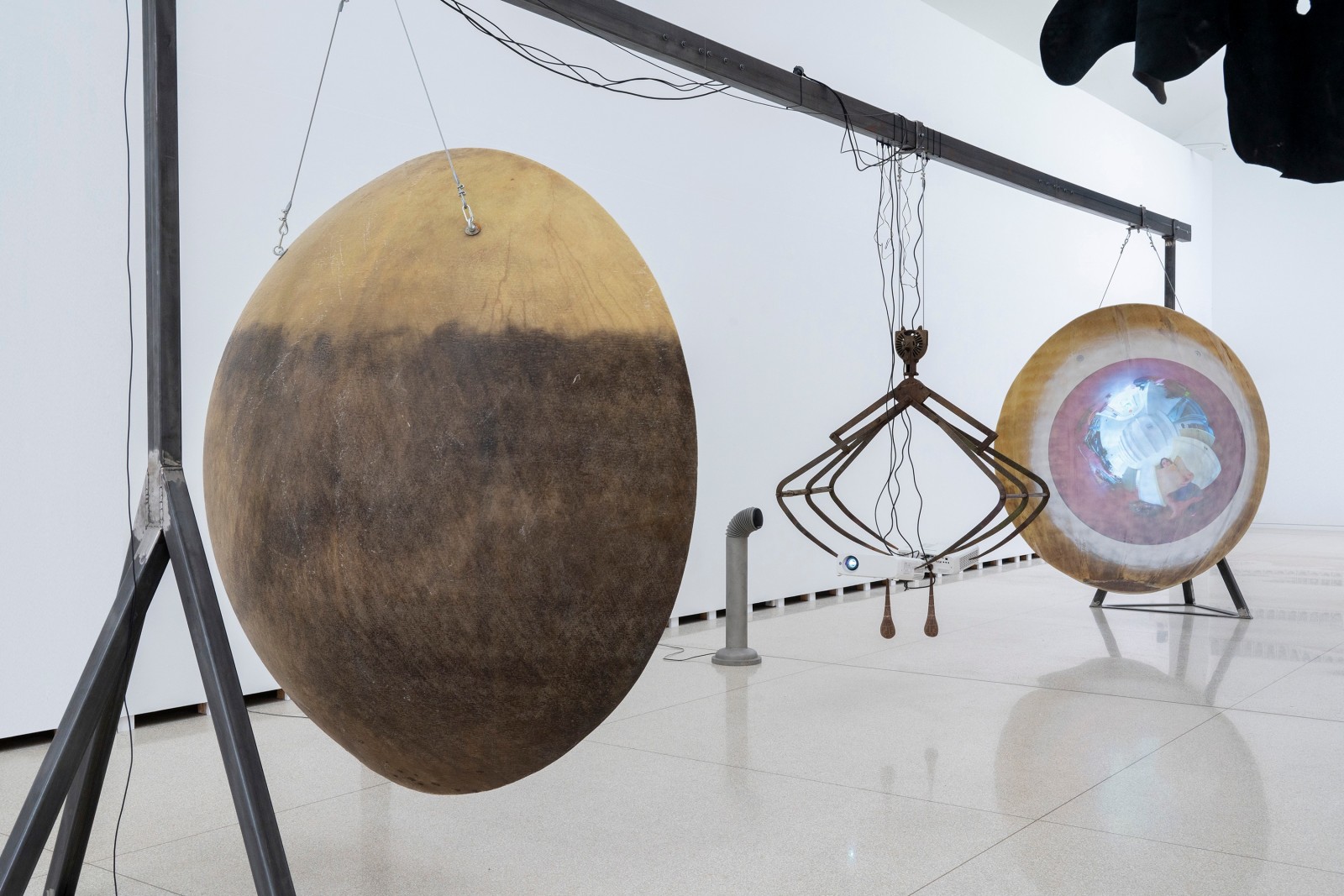
This perspective, in turn, breaks with the modernist principle of straight lines and right angles. This choice can be read as a subtle commentary on the idealism and associated dogmas of avant-garde architecture in the first half of the 20th century. Ironically, the format is also popular with estate agents because it makes narrow rooms appear larger than they really are. Hasn’t living space always been a weapon of the owning class?
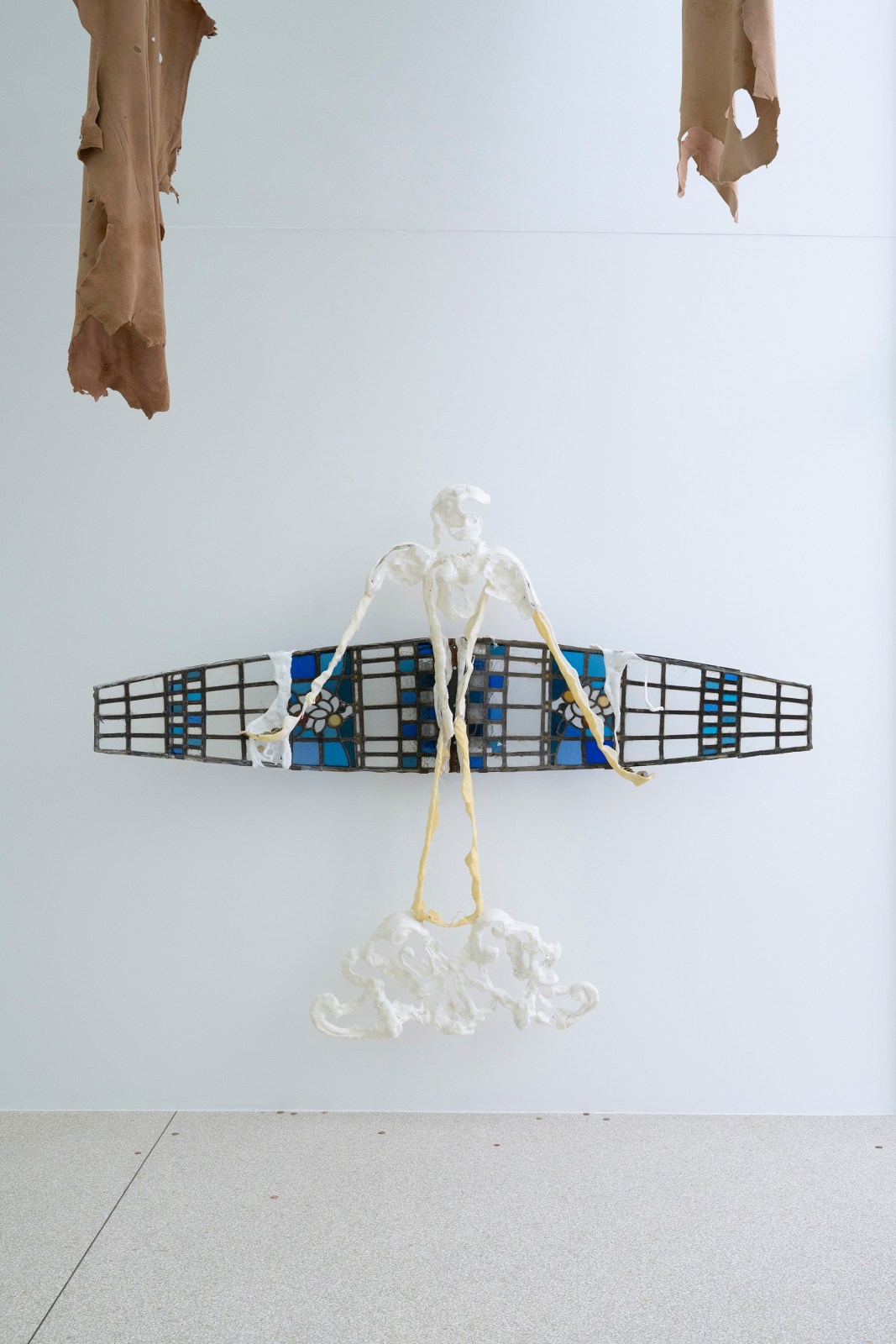
The Video, in turn, forms the core of a larger installation. The two channels of the film are projected onto two circular halves of an old oil tank. The oil tank, which is normally buried underground and is still used in many houses in Germany today, comes to light, while the artist simultaneously makes the life of a hidden person visible. The two halves of the tank hang opposite each other, on a horizontal steel profile like two giant sound bowls.
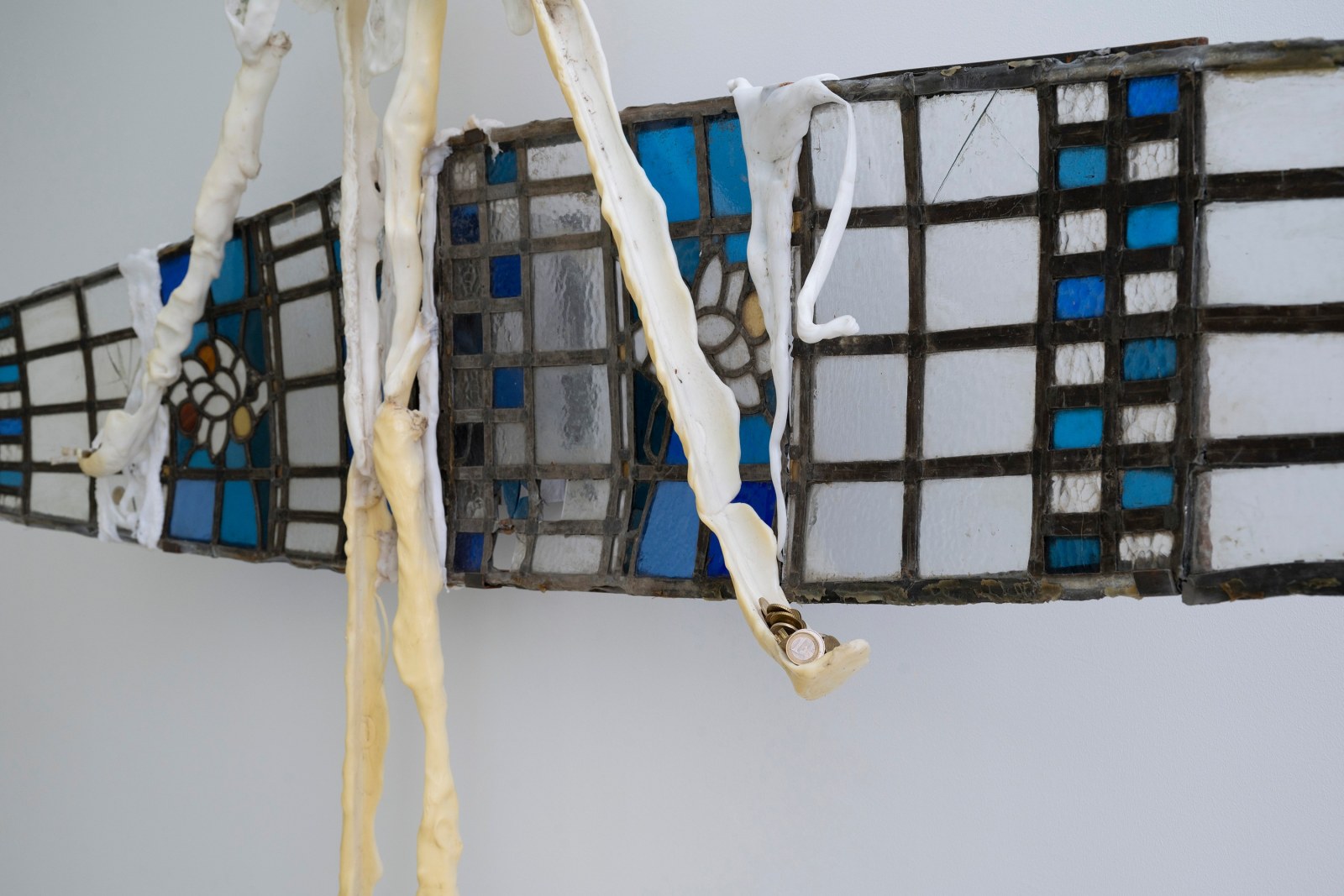
Vogel has anchored the video image sources, two white projectors, to the pointed claws of a rusty hay grab. In the midst of this fascinating and accessible image, the calm and confidently sung psalm – of a spark that becomes a flame – resounds from objects reminiscent of water or ventilation pipes. These protrude from the floor in such a way as to evoke the image of a (possibly) subterranean cellar in which Hopp had to hide from time to time.
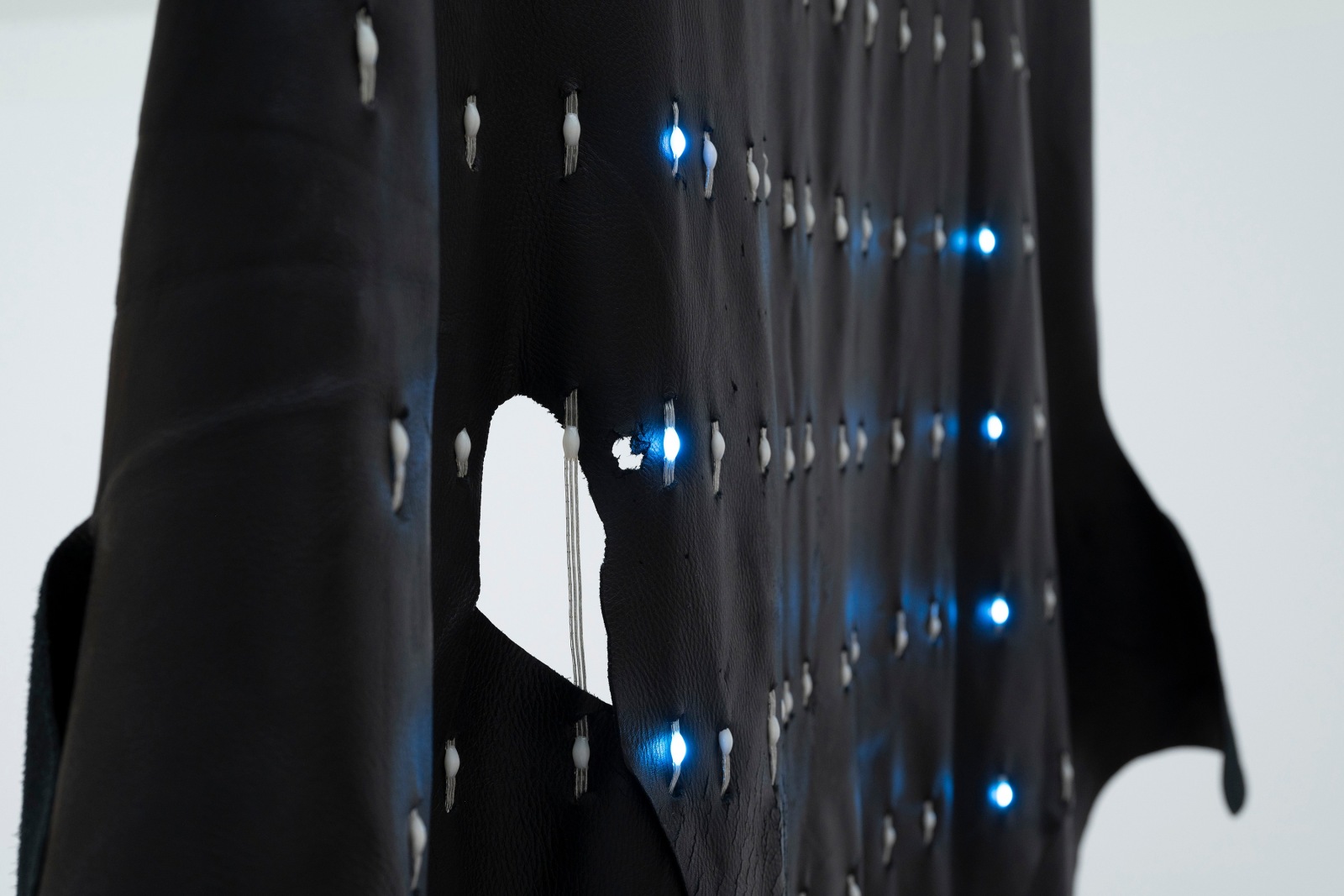
A series of leather hangings complements the setting. The artist has embedded large areas of light-emitting diodes in some of these panels, which are roughly torn at the edges and partially perforated, and whose vertically flashing deflections visualise the sound level of the surrounding space – both the sound of the aforementioned music and the sounds of the visitors themselves.
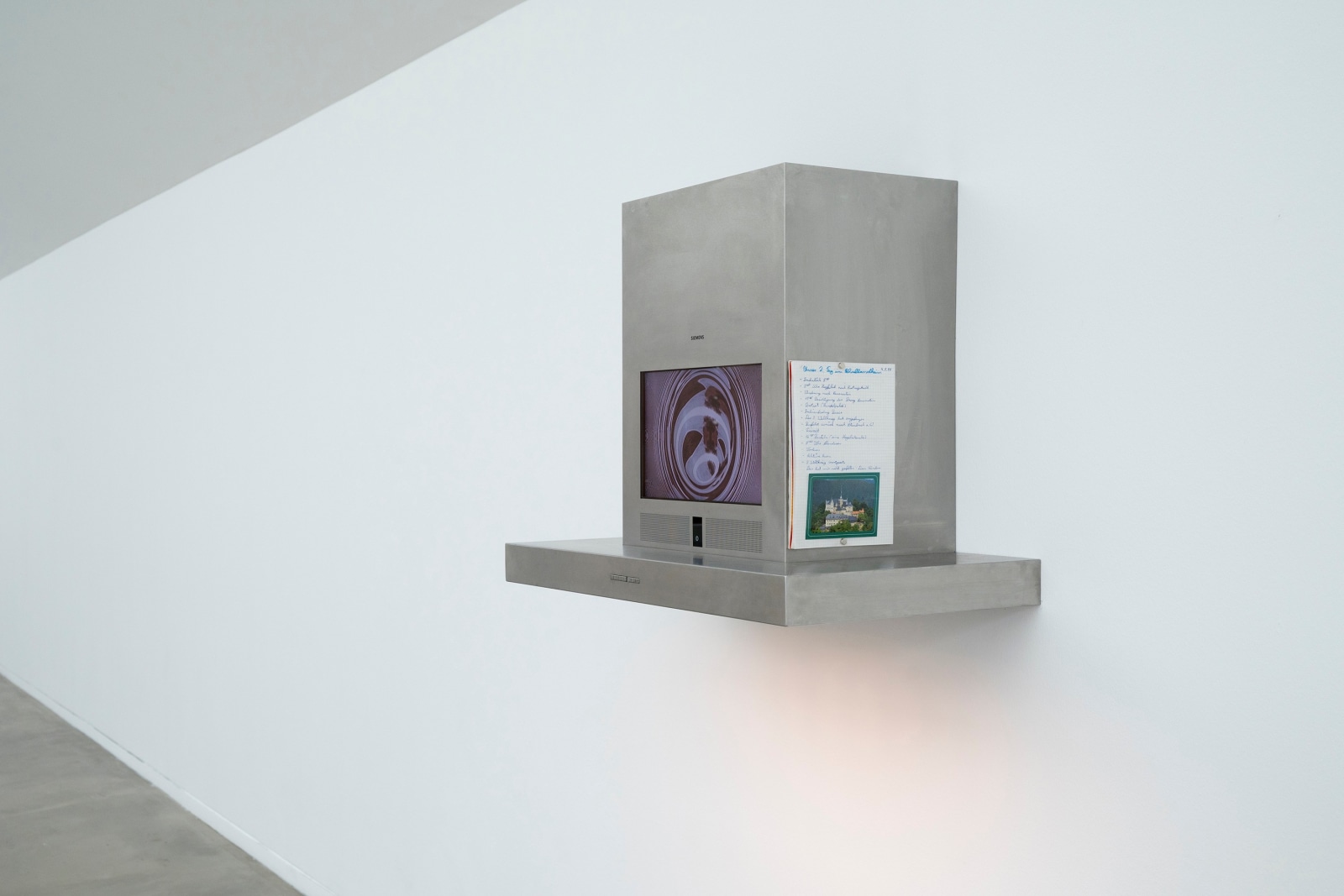
The punk-archaic look of the leather elements could perhaps also be seen as a reference to Berlin’s almost completely gentrified squatter culture. A kind of homage to the DIY-aesthetics of a fading counterculture that offered refuge from an ideology that turns living space into an object of speculation?
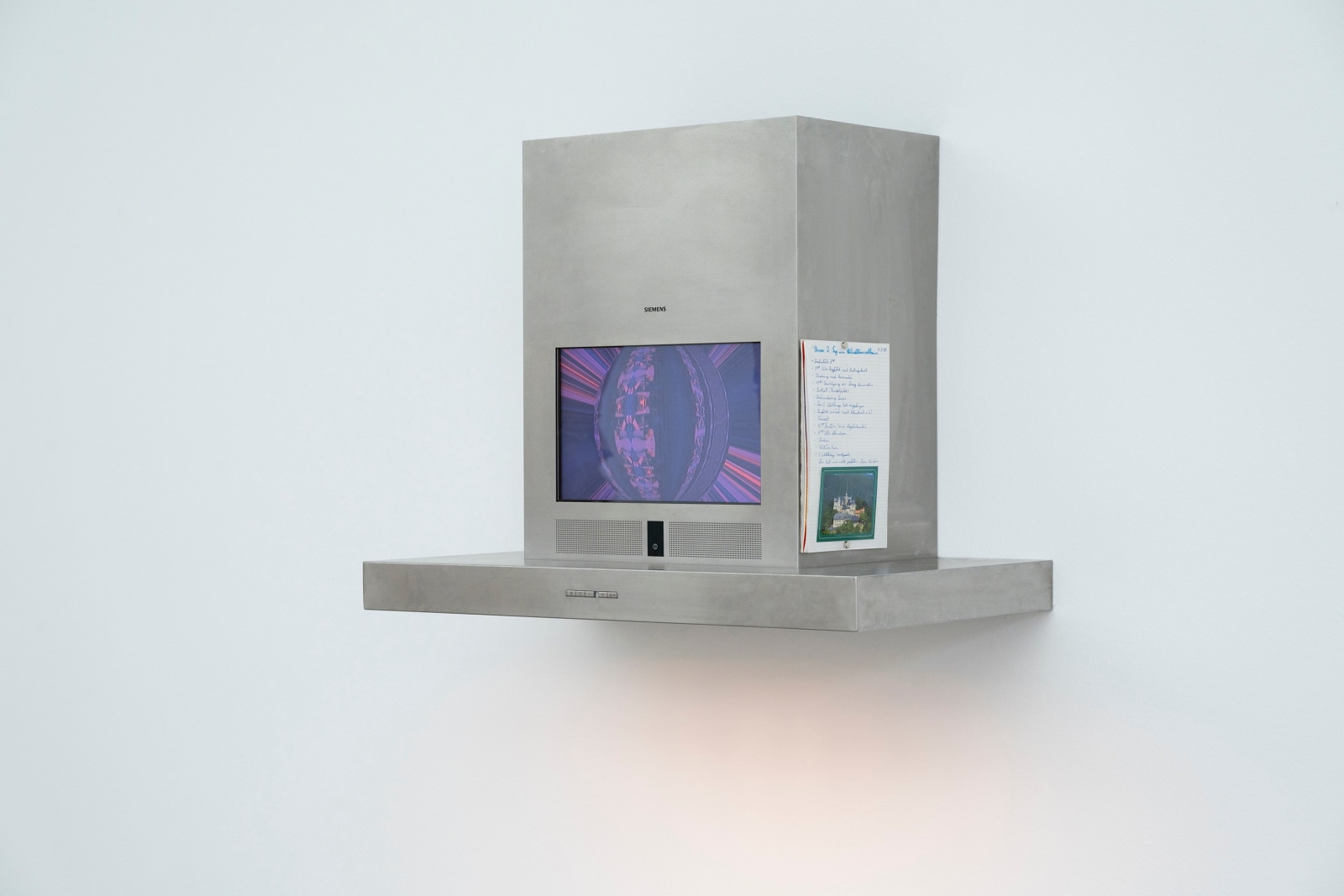
“Found Subject” is far more than an investigation of a place and the loosely interwoven, sometimes faded biographies in its history. Rather, the work quickly moves from the specific to the macro: to the painful experience of a time when belief in the emancipatory potential of aesthetic modernism collided with the totalitarian promises of fascism and its state-organised injustice.
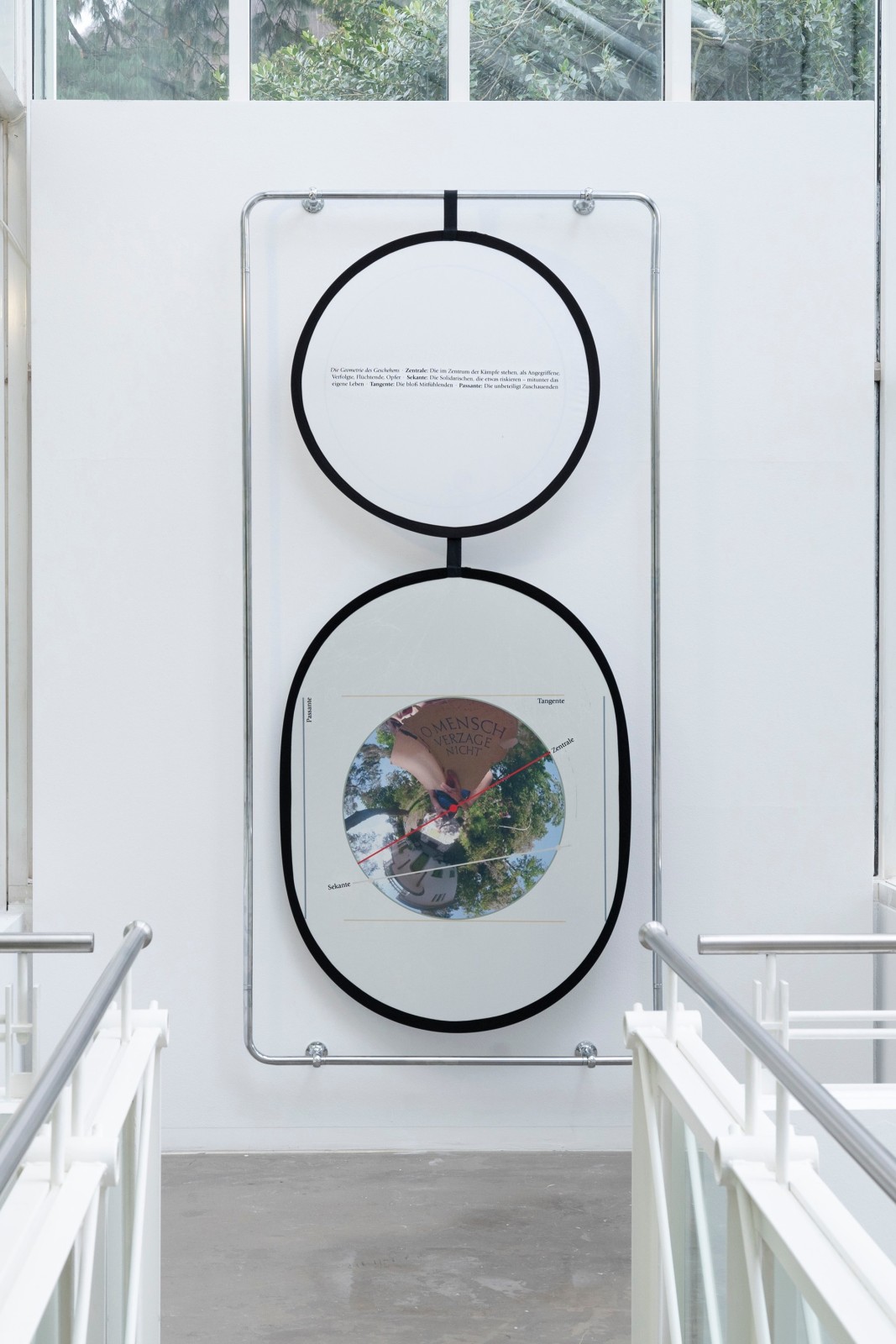
To what extent, then, does this specific biography stand for the erosion of an entire generation of intellectuals whose work and research were silenced in the context of the Nazi regime? After all, Hopp had worked on the German version of the book “Punish or heal? A psycho-pedagogical contribution to contemporary amorality” by Jehuda Riemermann.
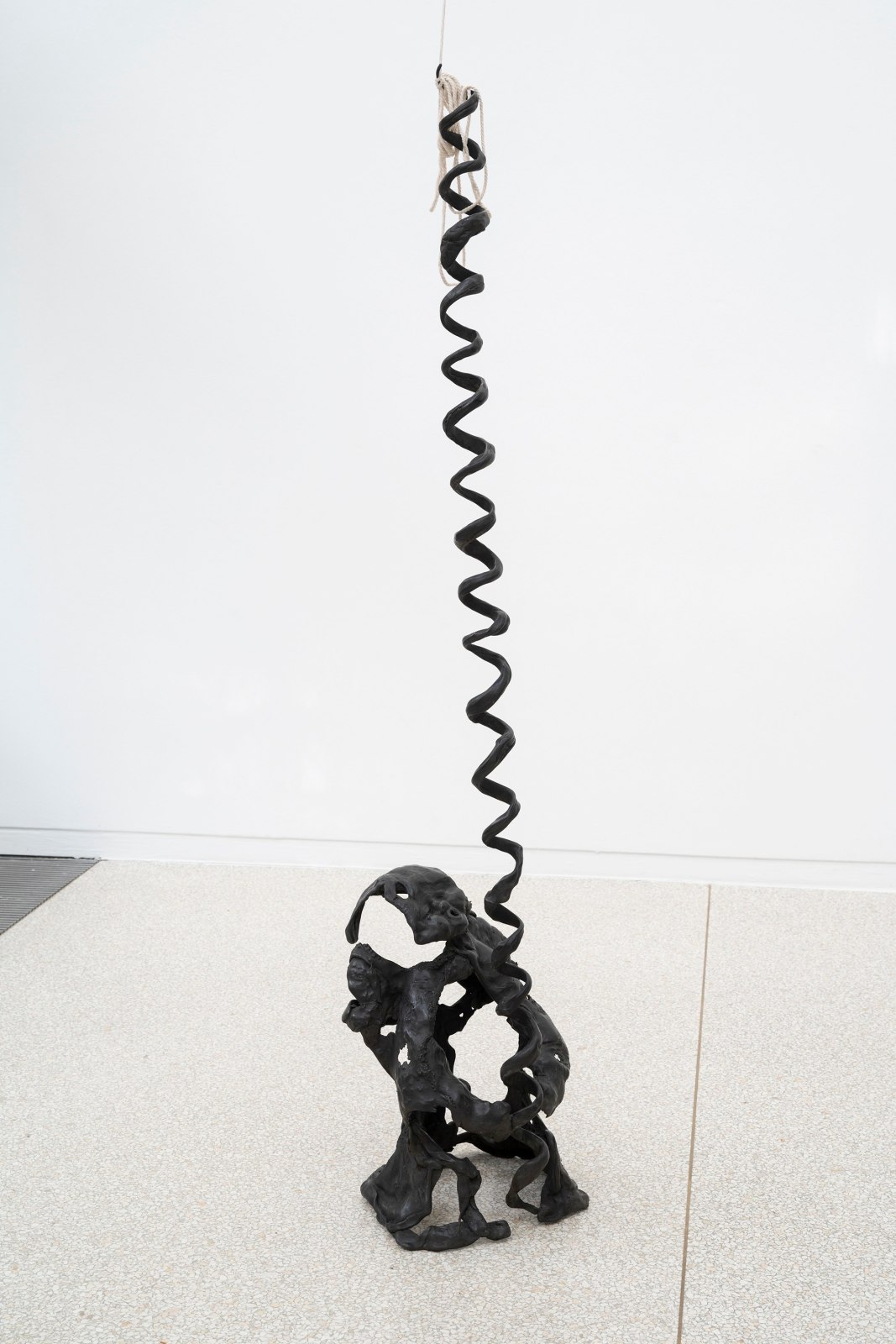
The book is held up to visitors at the beginning of the exhibition by the angel-like sculpture “Flotsam and jetsam from the stormy sea of time”. How can education and psychology, culture and politics foster people’s ability to empathise instead of hating the other? While Hopp was still writing song lyrics in the 1920s and 1930s, his later experiences of forced labour and flight seem to have pushed him more towards existential formats (Psalm) and humanistic topics.
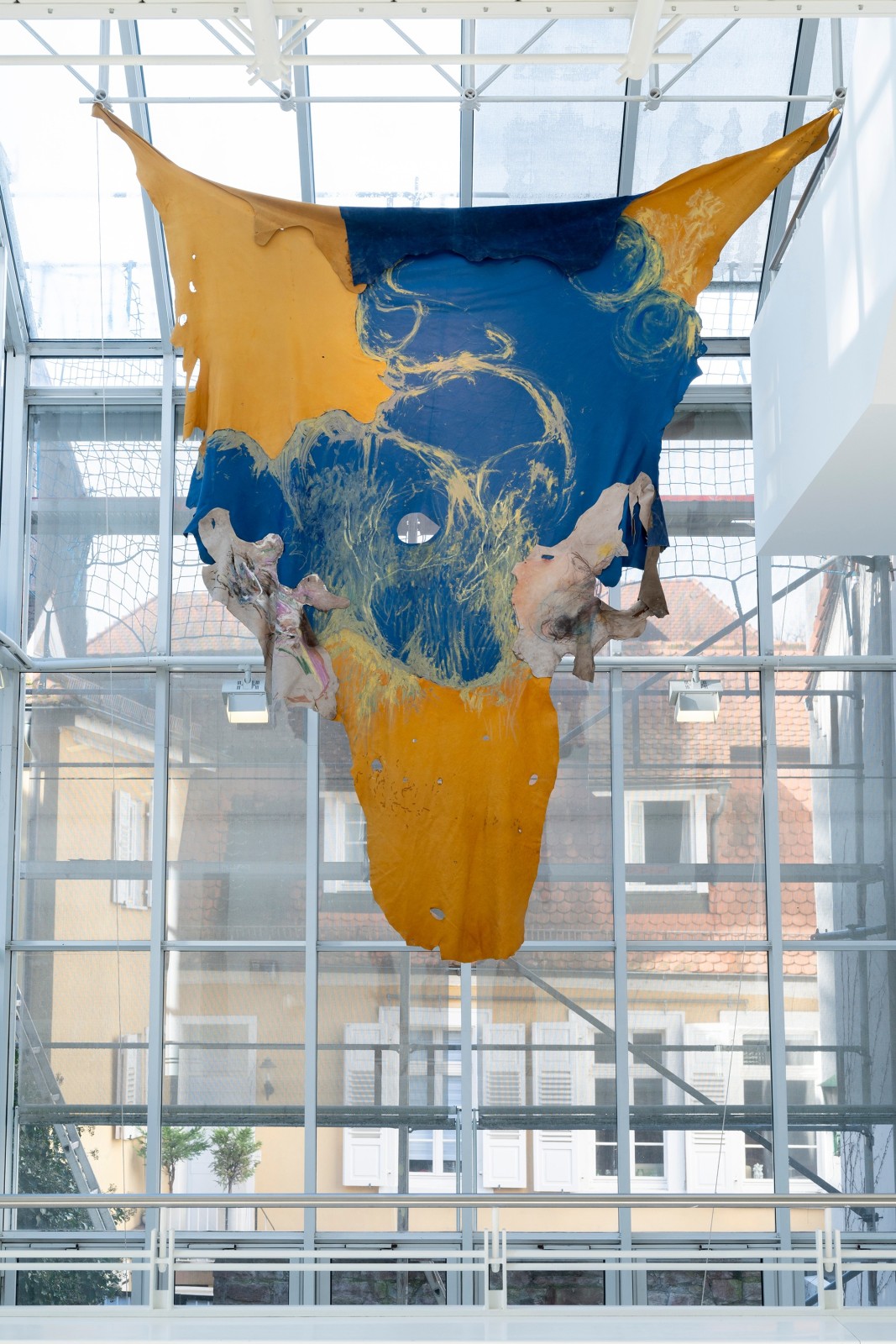
Doesn’t the exhibition also ask us under what conditions it is possible to believe in the development of a more humane world, despite the recurring historical dialectic of Enlightenment and Counter-Enlightenment, despite the fragile tipping point between idealism and ice-cold calculation?
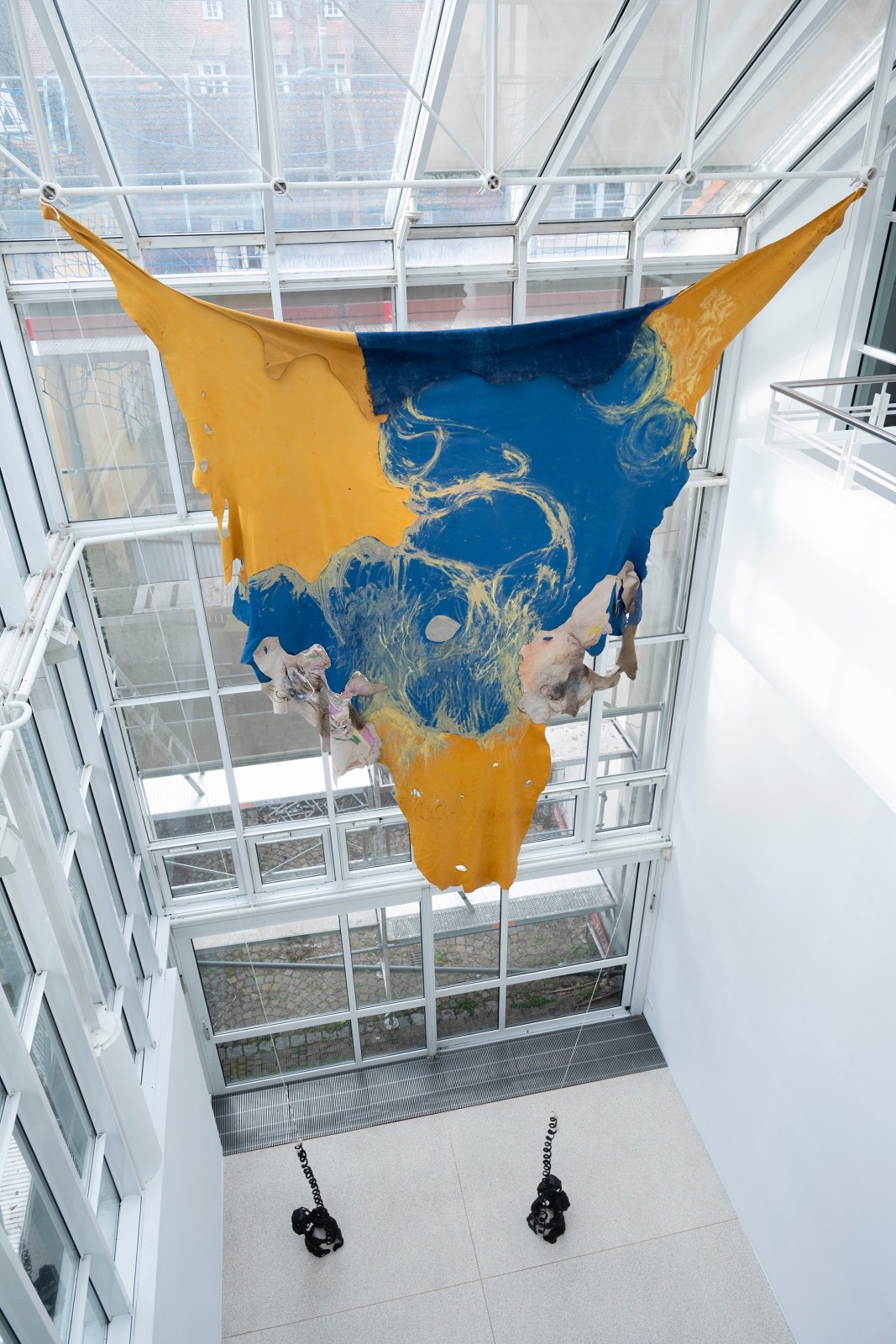
The topicality of Found Subject stems from the fact that today, in different parts of the world, countless people are forced to hide from the henchmen of authoritarian states, from war, hatred, state despotism and persecution because of their origin, their skin colour, their religion, their refugee status or their way of life, because they are denied the right to exist by others.
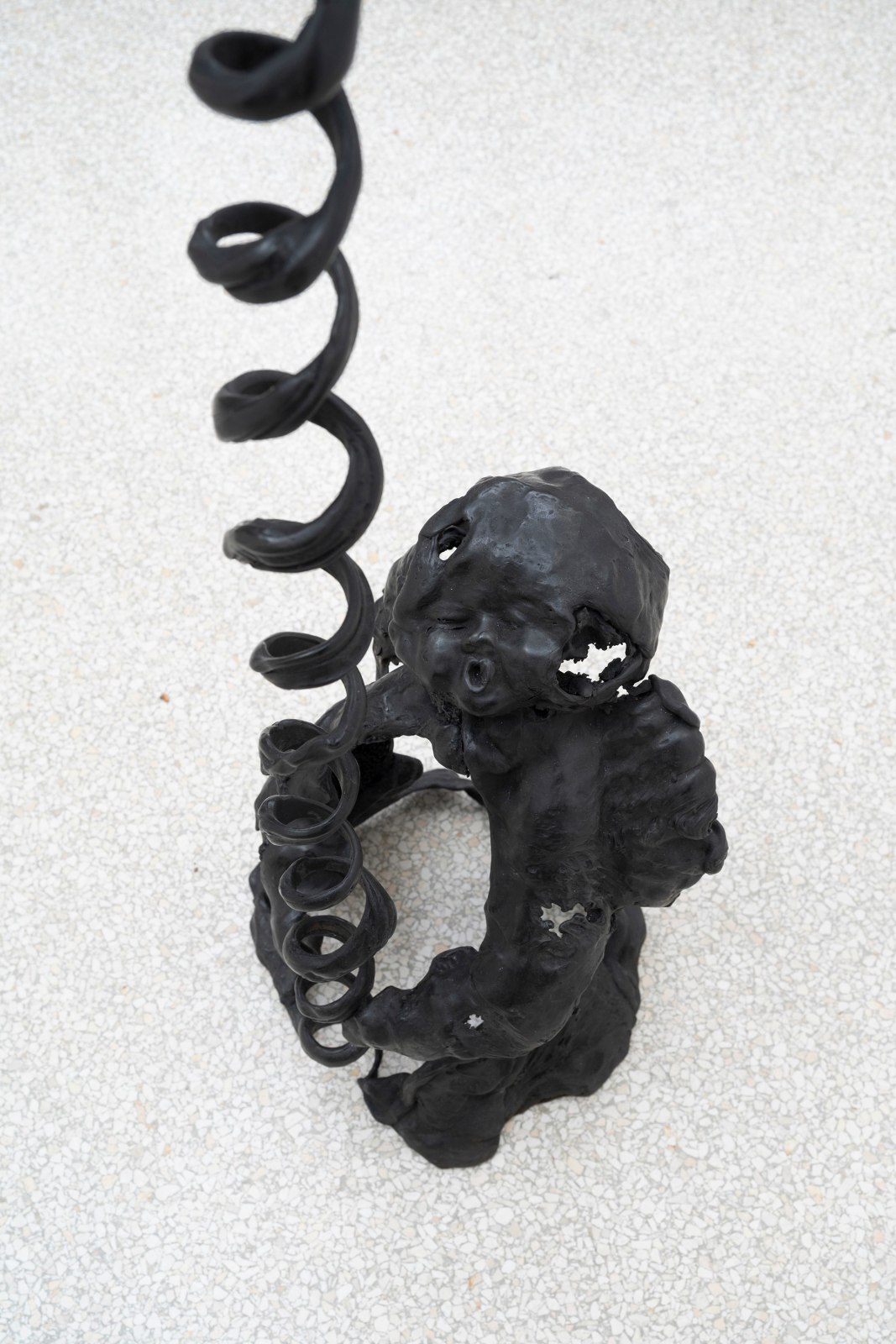
This horror does not affect only a certain group or a certain people, but is a reality everywhere and throughout human history. Empathy, which is much in demand today and sometimes even politically imposed, is a concept that is often misunderstood. It is overlooked that it is about the ability to understand the suffering of others, perhaps even of those who are supposedly on the “other side".
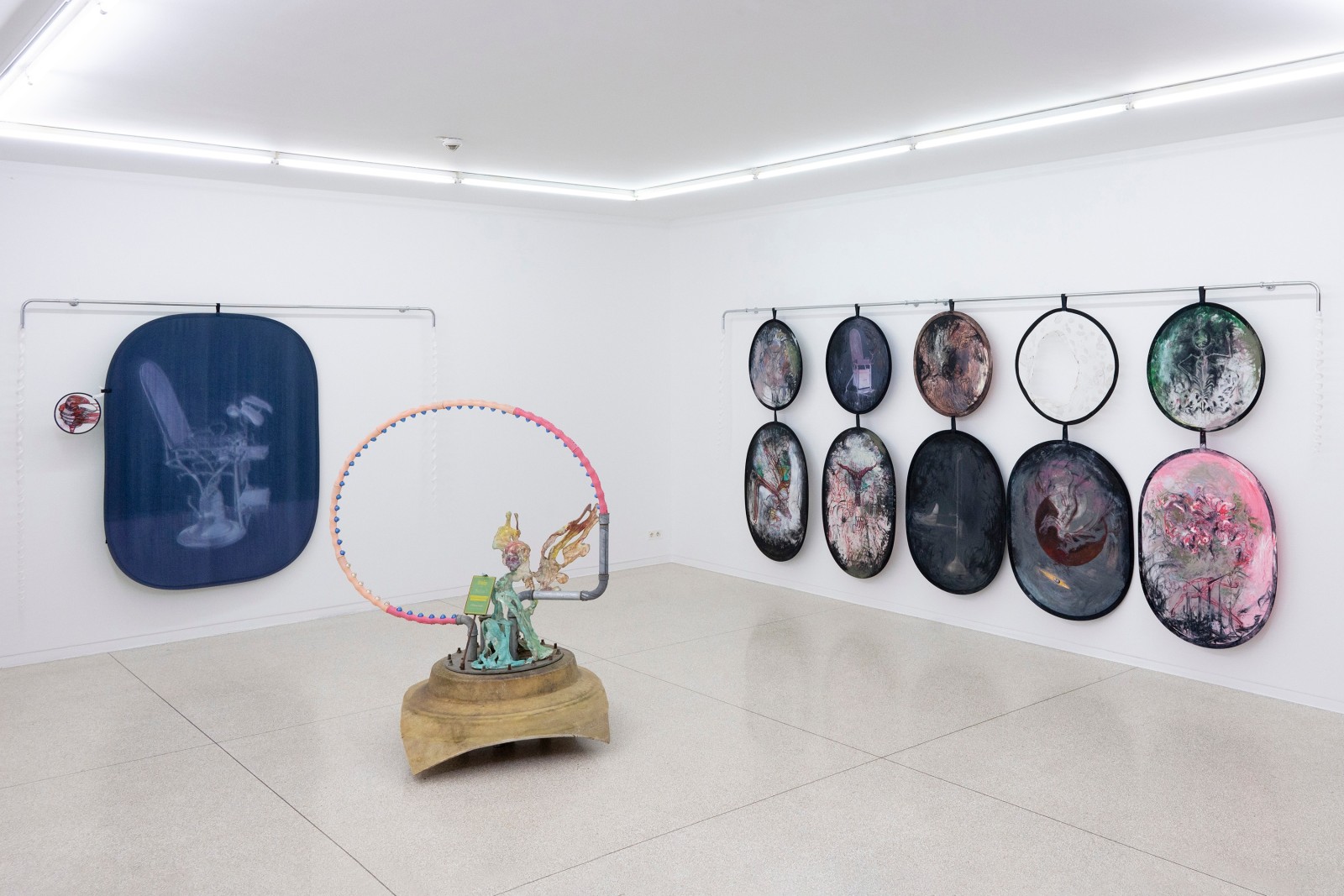
About Raphaela Vogel
Raphaela Vogel’s work is characterised by an unconventional use of different media. In addition to painting, video, sculpture and music, the artist formulates her own way of dealing with the objet trouvé by working with found objects. For example, she uses raw industrial products, such as a high-voltage insulator, or objects of mass culture, such as the plastic urinal commonly used at city festivals or football matches.
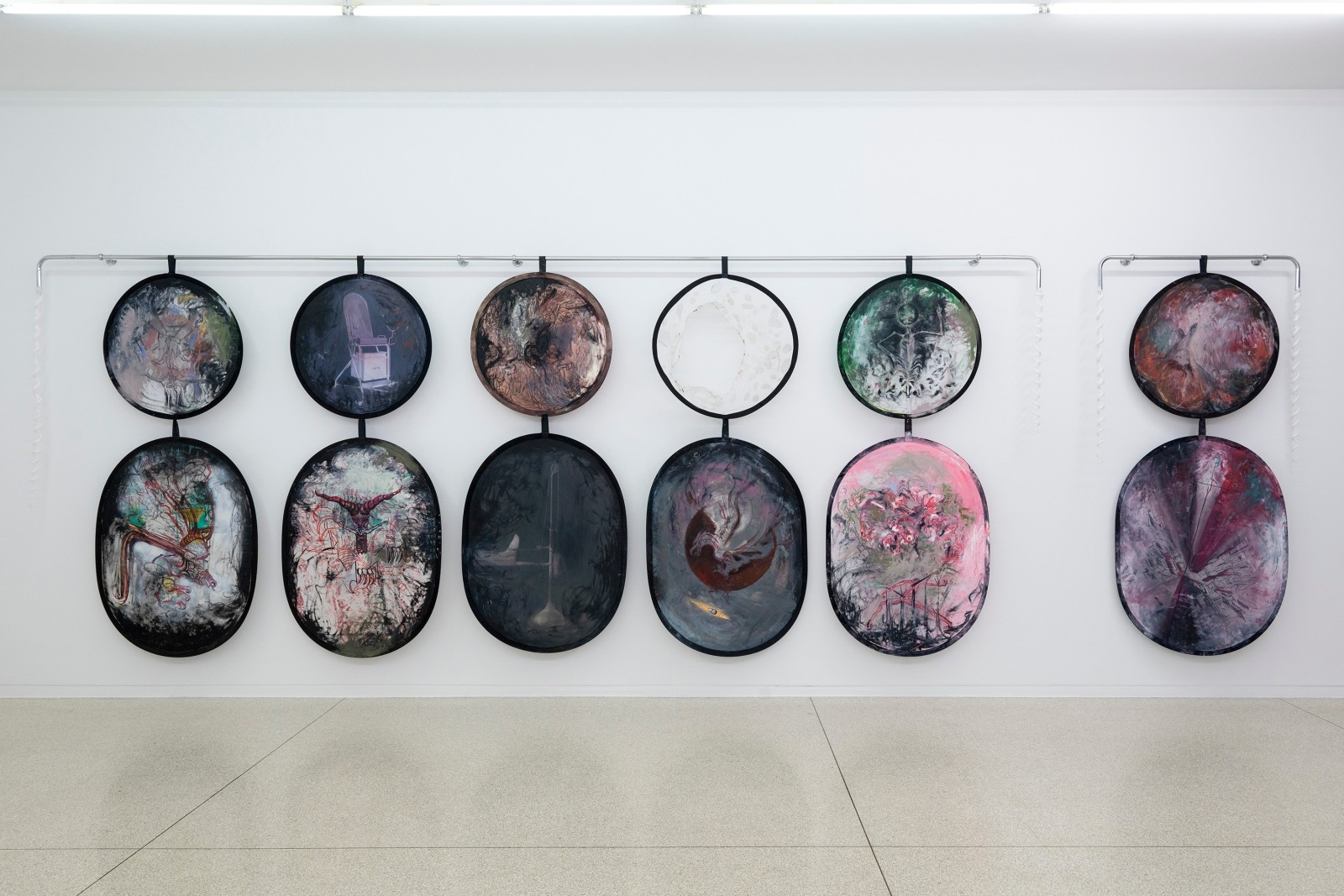
Its class-conscious counterpart, the gold-coloured hotel trolley, may also appear. What the selected objects have in common is that, in an art context, they seem particularly bulky and raw. Their forms derive from the pragmatism and economic calculation of every-day life, not from aesthetic discourse.
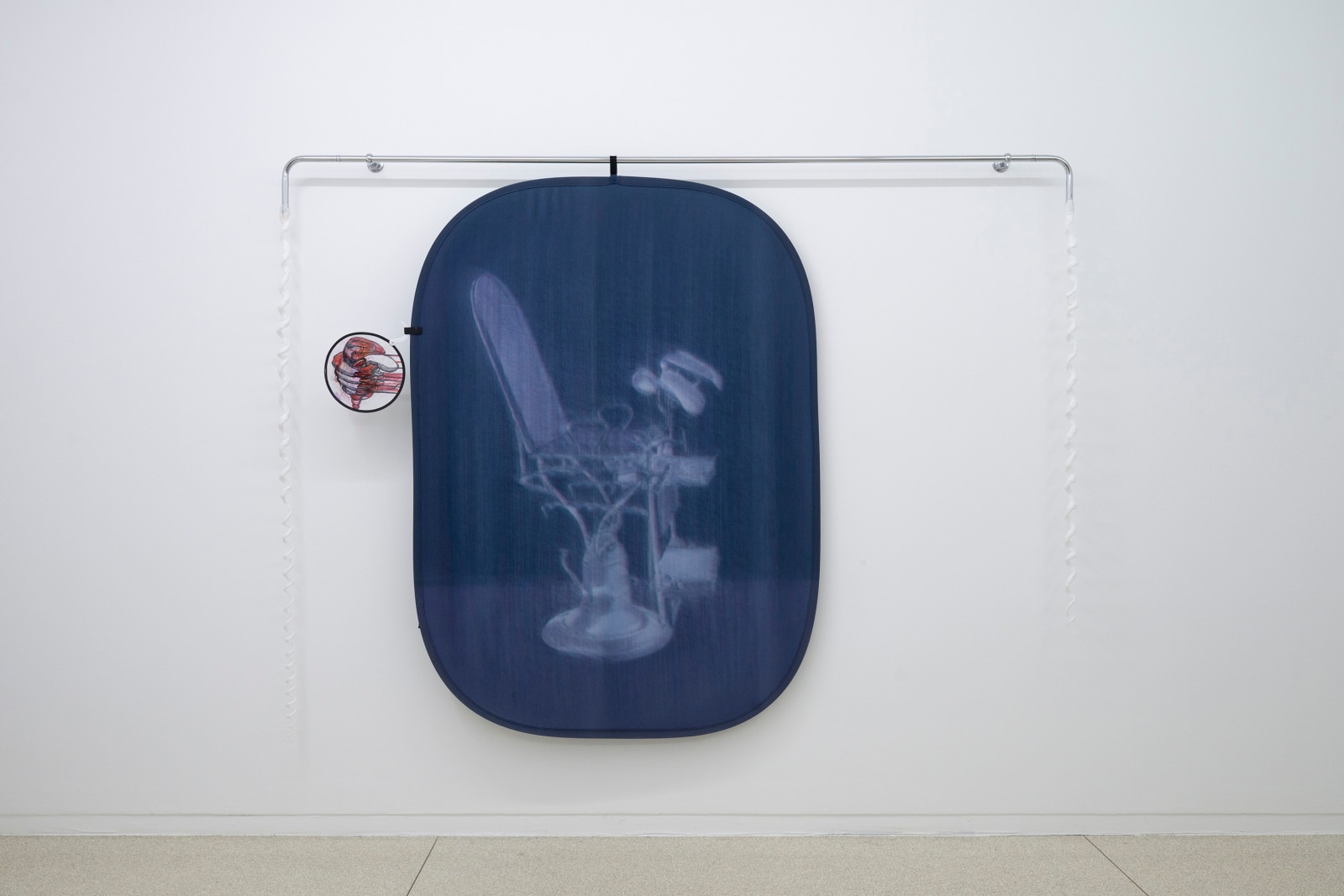
Vogel has been working with manipulated drones for ten years. She is constantly searching for new camera movements that elude her subjective direction. She throws cameras, attaches them to moving objects or glides them through the channel of a water slide. Vogel paints, prints and draws (often all at once) on a variety of materials, from reflectors to leather skins to Tyvek. By combining all these practices, she creates surprising and provocative installations.
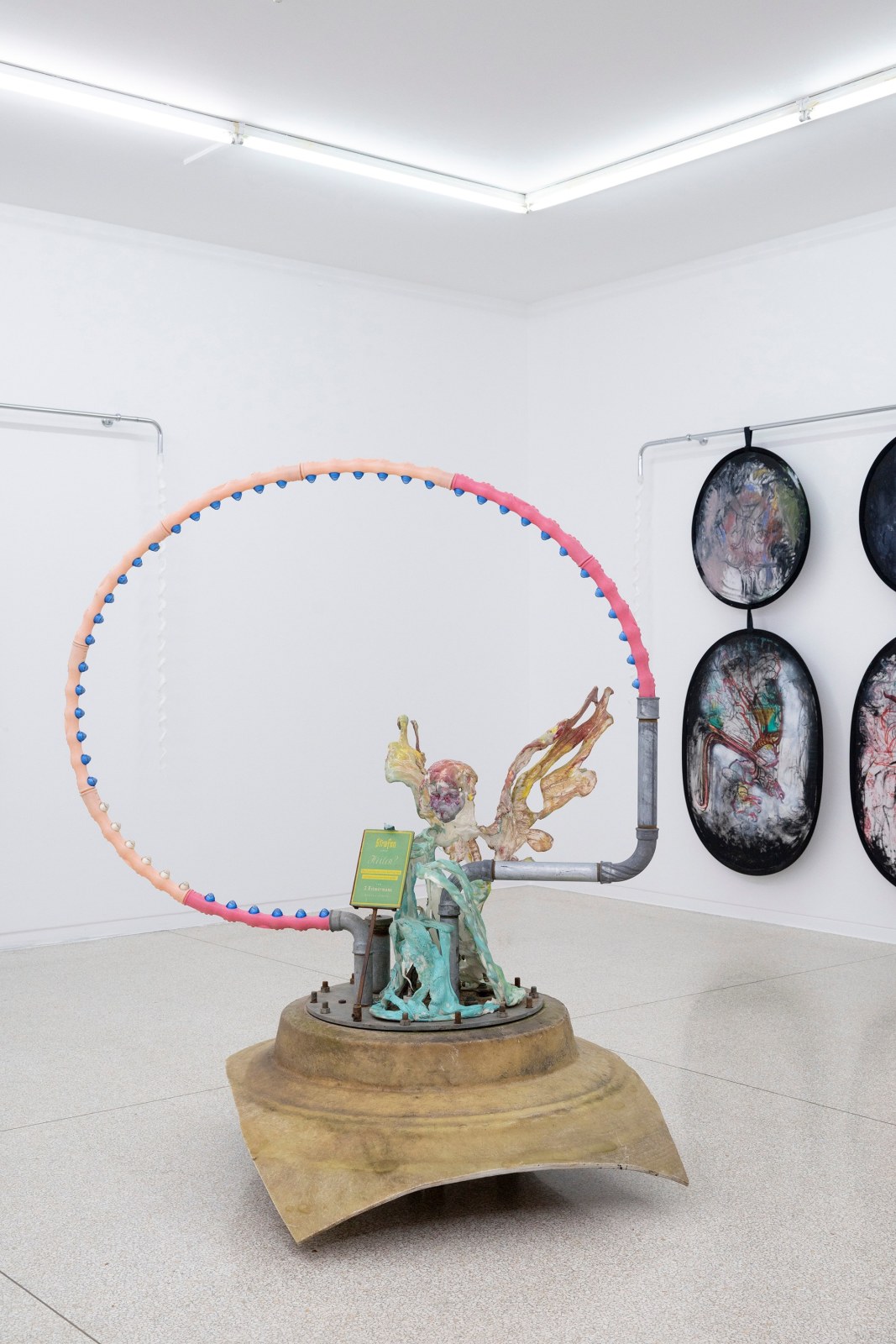
Vogel incorporates the entire exhibition space into her work and engages with its architecture. She has brought it to the brink of collapse with her precisely calculated suspension of extremely heavy loads. It seems to be a method of her artistic approach to repeatedly mark the limits of what is still or no longer considered ‚permissible’. By doing so, she asks which authority is entitled to decide? What and who empowers whom in the social apparatus?
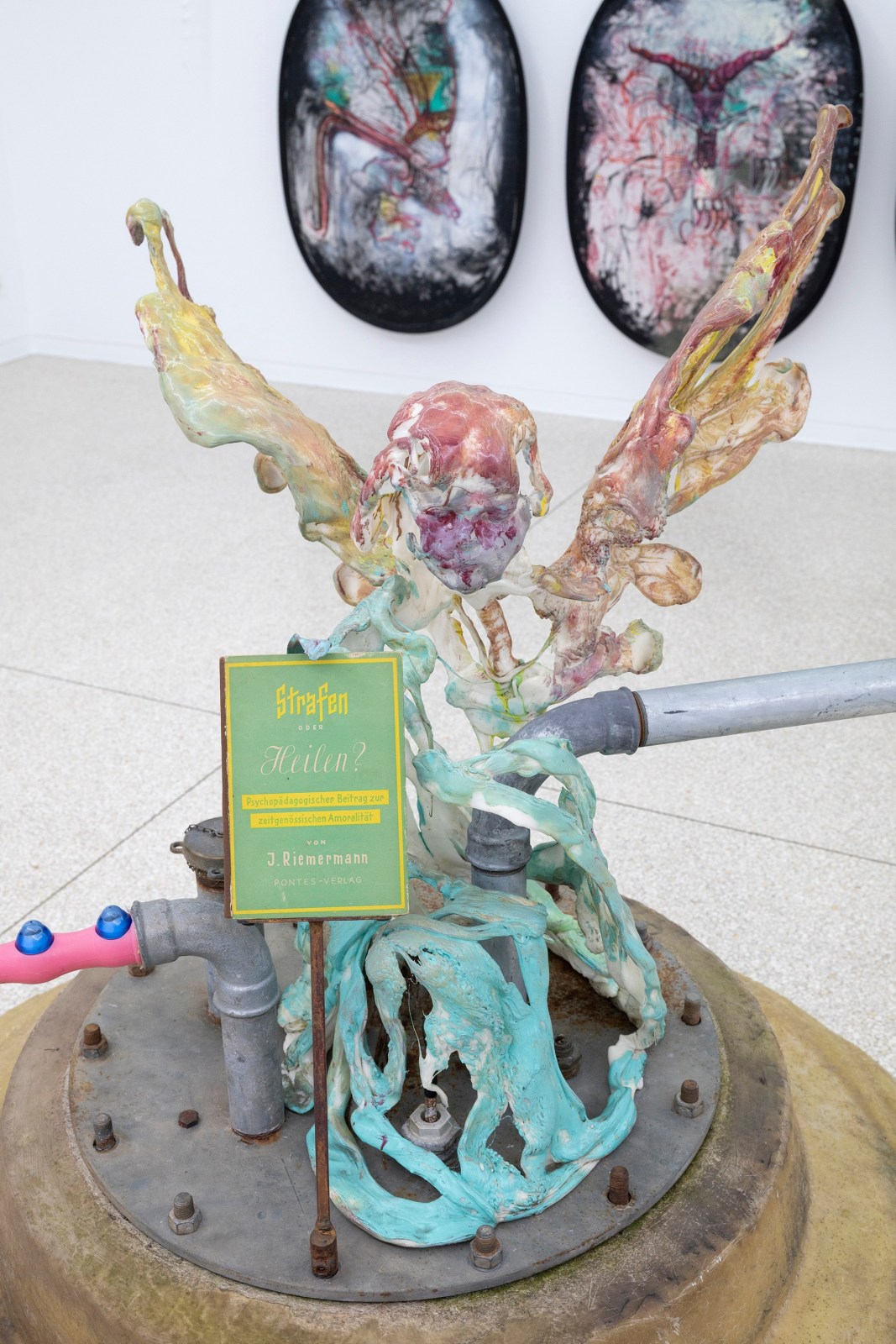
Her titles can play with the rhetoric of authoritarian ideologues in a pleasantly affirmative way (‘I Give You a Constitution’), ironically deconstruct gender stereotypes (‘She Shah’, ‘In Firm Hands’) or reflect on her own position in the art world (‘Ultra-Naked’). More recently, she has been creating installations that negotiate different and contradictory positions of political and cultural discourses with (and against) each other in an essay-like manner. Vogel was born in 1988 in Nuremberg. She lives in Berlin.